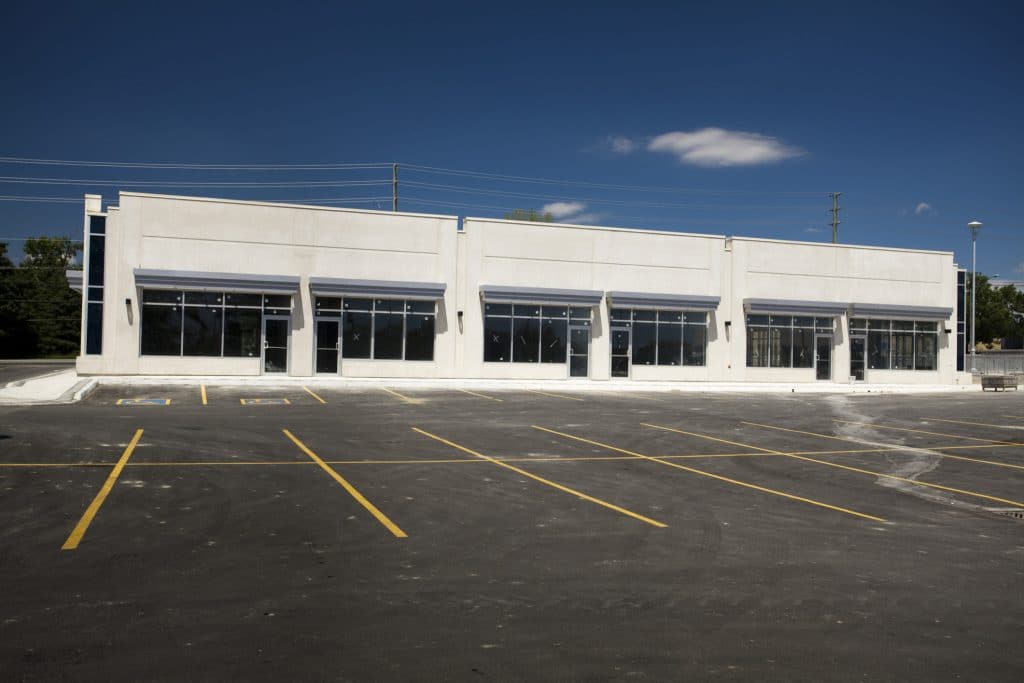
In Distress?
June 15, 2020
Distressed real estate market creates opportunities for buyers post-COVID—the question is when?
The civic and economic impact of the coronavirus pandemic has been profound, altering lives and livelihoods in different ways. Some of those effects could last not just for months, but for years.
Market disruptions are always chaotic and consequential, but the challenges they present also come with corresponding opportunities. Monitoring market trends and identifying potentially lucrative investment assets during times of turmoil and market disruption is something that every smart investor and real estate professional strives to do. While there’s no doubt that a distressed real estate market will create opportunities for buyers post-COVID, experienced commercial real estate professionals and savvy investors should be asking themselves some important questions.
What is the value of buying a distressed property currently? What kinds of opportunities are out there for real estate investors? What areas across the country are favorable for identifying and capitalizing on those opportunities, and when would be the best time to take advantage?
Finding the window
While potential investment opportunities seem certain to present themselves, that moment has not yet arrived—at least on a national scale. While pricing has grown stagnant, it has not yet fallen. That isn’t necessarily unexpected at this stage of the game, but it does leave potential buyers in a wait-and-see mode for now.
Behind the scenes, there are a sizable number of loans in default or on some sort of watchlist. Which likely means that if something dramatic doesn’t happen to change the course of the pandemic or the economic outlook in the relatively near future, a lot of properties will enter the market over the next 6 to 24 months. If that happens, the inevitable result will be an oversupply of properties and opportunistic prices.
Most lenders are still actively working with borrowers to provide short term forbearance and help get them past the stay at home orders and economy reopening. That, however, won’t last forever. There are no certainties in the middle of an unprecedented global public health crisis. From vaccine development and social distancing compliance, to local and state policy differences, there are simply too many factors to predict the depth of the recession, the length of shutdowns and slowdowns, and the speed and extent to which markets are able to bounce back. The smart money is looking at early 2021 for the real estate market to be fully occupied once again.
Markets and mayhem
One of the most fascinating questions that real estate professionals and investors will need to answer in the weeks and months ahead is where those distressed market opportunities will figure most prominently. While there are bound to be opportunities throughout the U.S., the already dramatic differences in state-, county-, and even city-specific policy decisions and pandemic trends makes it clear that the timing and extent of favorable real estate investment conditions is likely to be equally variable.
It isn’t just the direct impact of the virus itself that will play a role, but the character of individual markets. Given the likely slow recovery curve of places like hotels, theaters and restaurants, entertainment-heavy markets and traditional tourist destinations will be among the hardest hit. Markets like Las Vegas, where casino and hotel numbers are down dramatically, could see big changes—and correspondingly big real estate investment opportunities.
Higher density areas have not only been hit hard by the coronavirus but will also feel more significant long-term real estate impacts. Downtown communities in cities like New York, Los Angeles and Seattle are likely to be less desirable, and the resulting flight to suburban real estate could reshape markets and alter real estate investment landscapes in profound and lasting ways.
One important factor to monitor going forward is that there is a lot of money sitting on the sidelines right now. Prior to the coronavirus outbreak, real estate pricing had gotten to a point where fewer people were buying. This creates the potential for a higher-than-usual degree of competition when attractive investment opportunities do start to present themselves. For so many real estate professionals and investors waiting for the right time to make their move, it’s not a matter of if, but when to try and capitalize on those opportunities.
___
If you’re interested in receiving a complimentary, no-obligation commercial real estate consultation, contact Farbman Group and get in touch with an expert today.
Related Posts

Crain's Notable Commercial Real Estate Leaders
Blog Post | July 17, 2024
Click Here for Full Article Scope of work: Andrew Gutman worked his way up at myriad commercial real estate firms to lead Farbman Group, Farbman companies, 30 million rentable square feet...
Read More
What’s a Broker to Do? Tight Vacancy and High Interest Rates Mean No More Slam-Dunk Deals
Blog Post | July 9, 2024
Brokers Have to Get Creative — as in Create Deals Brokers need to study their local markets like never before and know who the top buyers and sellers are, stressed...
Read More
Connect Midwest Multifamily Panelists on 2024 CRE Trends
Blog Post | June 26, 2024
CRE experts from the recent Connect Midwest Multifamily conference in Chicago reflected on their experience and the importance of meeting customer needs in business. As the age-old mantra says,...
Read More